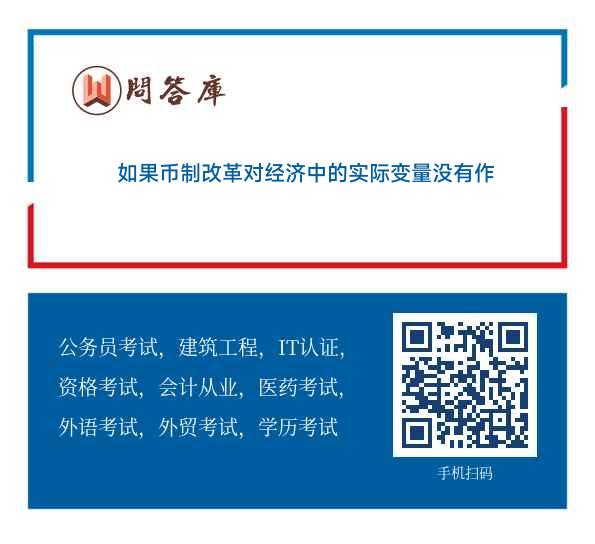如果币制改革对经济中的实际变量没有作用 那么为什么政府通常会采用币制改革的方式并结合其他做法
问题详情
如果币制改革对经济中的实际变量没有作用,那么为什么政府通常会采用币制改革的方式并结合其他做法来控制通货膨胀呢?(除正文中讨论过的法国的例子之外,还有许多例子。近年来的实例包括:以色列由镑改为新谢克尔(Shekel);阿根廷将比索改为奥斯托(austral),再改回为比索;巴西将克鲁赛罗(cruzeiro)改为克鲁扎多(cruzado),接着又改为克鲁赛罗(cruzeiro),既而又改成真克鲁赛罗(cruzeiro real),最后在1994年又将真克鲁赛罗改成瑞亚尔(real))。
If a currency reform has no effects on the economy's real variables,why do governments typically institute currency reforms in connection with broader programs aimed at halting runaway inflation? (There are many instances other than the French case mentioned in the text.Recent examples include Israel's switch from the pound to the shekel,Argentina's switches from the peso to the austral and back to the peso,and Brazil's switches from the cruzeiro to the cruzeiro,from the cruzado to the cruzeiro,from the cruzeiro to the cruzeiro real,and from the cruzeiro real to the real,the current currency,which was introduced in 1994.)
参考答案
币制改革通常要和其他政策结合起来以控制通货膨胀。在经济体制改革时期引入新货币将产生心理效应,让公众重新形成对通胀的预期。经验证明,如果缺乏货币供给量减少等紧缩性的政策作为支撑,币制改革所产生的心理效应将无法保障抑制通胀的稳定计划获得成功。
